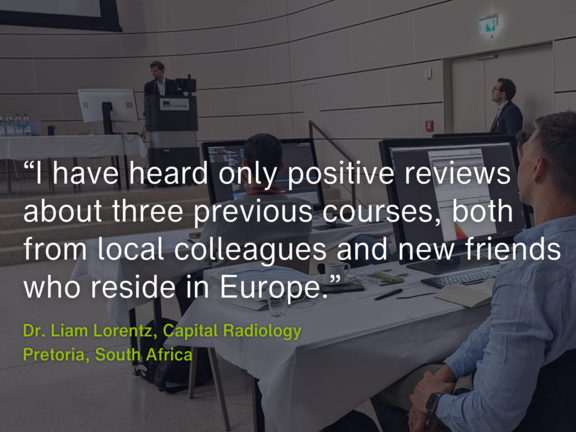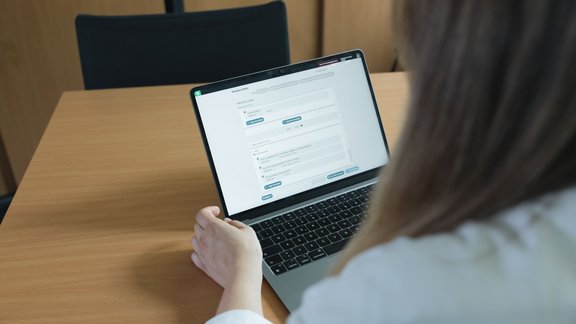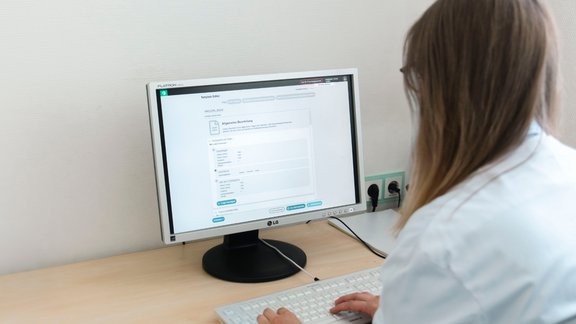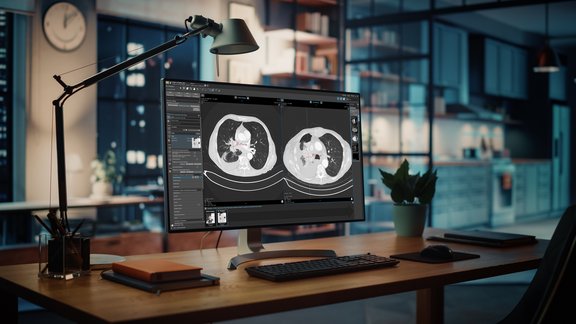Following the conclusion of the ESOI-EORTC Workshop on Imaging in Assessing Response to Cancer Therapy in Munich, we were keen to gather feedback directly from the attendees to gain an understanding of the radiologist's viewpoint on this course.
We spoke with Dr. Liam Lorentz, a Radiologist at Capital Radiology from Pretoria, South Africa. Dr. Lorentz has spent the past few days in Munich, deeply engaged with a global network of experts and peers through an interactive program of lectures, case studies, and hands-on sessions.
Dr. Lorentz, you've traveled all the way from South Africa to attend this workshop in Germany. What motivated you to embark on this lengthy journey?
I have been planning to attend the ESOI-EORTC RECIST workshop for the past two years. Prior commitments and engagements have previously clashed with the course dates. This year, I planned early and committed to traveling, and booked the necessary arrangements. It is ironic that on the first day of the workshop, the ESOI local team informed me the next RECIST workshop would be back home in Cape Town. While a trip to the Cape is always welcome, I am delighted to attend this year in beautiful Munich. I have heard only positive reviews about three previous courses, both from local colleagues and new friends who reside in Europe. I hope to solidify my core knowledge of RECIST and use the skills learned to optimise the principals in my own practice.
Were your expectations fulfilled? What key takeaways will you be bringing back home with you from this workshop?
Yes, expectations were fulfilled. In addition to providing an opportunity to practice on easier, simpler cases, we were exposed to challenging, complex cases. I thoroughly enjoyed the 'beyond RECIST' assessments with modified, immune responses and Lugano assessments. The examples were demonstrable, which assisted in solidifying concepts. From basic concepts such as the RECIST' rules' or criterion to HOW to measure and lesion selection were well encompassed. The session on thoracic disease manifestations was excellent, thorough, and relevant to accurately interpreting non-malignant disease.
Prior to the workshop, you hadn't utilized mint Lesion™. How rapidly were you able to familiarize yourself with the software?
By the second practical session/workshop, I was comfortable with the bulk of the functionality. Certainly, by lunch, I could perform the relevant assessments that were required. The tips, tricks, and keyboard shortcuts I have learned while practicing cases. They were easy to learn and navigate. For lesion assessment and follow-up comparison, the software was intuitive and robust.
Thank you for your insights, Dr. Lorentz!
Many thanks to ESOI, EORTC, Mint Medical and Barco for an impeccably organized and thoroughly enjoyable RECIST workshop 2023!



